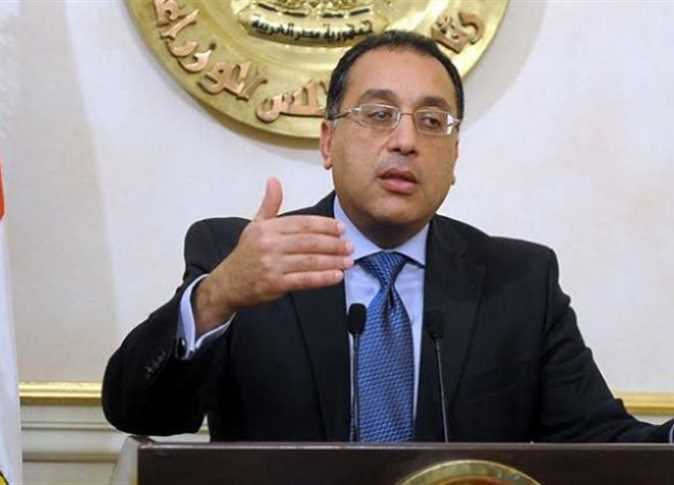When President Hosni Mubarak resigned on 11 February, he left behind a troubled economy. One of his more potent economic legacies is an extremely high rate of public debt, which has been compounded by the effects of the economic slowdown during the 18-day uprising that swept him from power. Egypt’s interim and future governments will have to figure out how to deal with this problem.
Finance Minister Samir Radwan and Prime Minister Essam Sharaf have been visiting western and Arab countries to look into rescheduling Egypt’s debts and soliciting aid and foreign direct investment. Donor countries and institutions have been largely sympathetic, but help from them will only get Egypt so far.
The majority of Egypt’s debt burden is internal, and the interim government has the crucial task of paying it off while managing the deficit so as not to exacerbate it. According to the Central Bank, internal debt currently hovers around LE888 billion (about US$155 billion). Given the economic slowdown, analysts doubt that the interim governmentwill be able to manage the budget without borrowing more.
Indeed, the government itself has not been shy in proclaiming the seriousness of the situation. The Ministry of Finance said the country is on the brink of collapse.
Among the loudest voices declaring the urgency of the national debt crisis was that of Minister of Planning and International Cooperation Fayza Aboulnaga. During her speech to the US Chamber of Commerce in mid-April, she presented a somewhat radical solution. "What we're asking for from our American friends is to give us debt forgiveness," she said.
When news media earlier this week announced that the US would forgive US$1 billion of Egypt’s debt, it seemed as if the minster's wish had been granted. However, within 24 hours, the US Embassy denied the reports, saying it had no plans to forgive any debt.
Whatever its origin, the rumor was sufficient to spark widespread debate. The initial reactions to the news reports were optimism and gratitude while the Egyptian streets buzzed with hope that the EU and the US would forgive even more.
Magda Qandeel, the director of the Egyptian Center for Economic Studies, was disturbed by the news that the US would forgive the debt. When he discovered the rumors were false, he was somewhat relieved.
“Debt forgiveness is usually reserved for countries who are declaring bankruptcy. It’s better if the debt is rescheduled or substituted,” she said.
Debt forgiveness could have long-term adverse effects, including scaring away potential foreign investment and hindering the country’s future ability to sell bonds.
The reduction of US$1 billion in debt would have been substantial, given the fact that Egypt’s external debt amounts to US$35 billion. But external debt only accounts for 15 to 20 percent of Egypt’s total debt. The rest is internal and the result of a continuous budget deficit.
According to Abdel Khalek Farouk, an economist and activist, Mubarak further burdened the budget by establishing special funds by executive order that went to government-run agencies but were not subject to oversight.
Additionally, improper valuation of privatized companies, undervalued contracts involving gas and oil, and spending from emergency reserves all hindered the government’s ability to finance expenses, Farouk said.
“The public perception that internal debt is better than external is flawed. Internal debt is usually short-term and having to restructure it more often creates a fiscal strain on the country,” said Qandeel.
The internal debt has increased by 22,200 percent since Mubarak came to power 30 years ago, at which point it was LE4 billion. The external debt at the time was US$25 billion. The devaluation of the Egyptian currency after the First Gulf War was the main stimulus for the increase in internal debt as a proportion to external debt.
“Many of the fiscal policies over the last 30 years served narrow interests. Spending priorities in the national budget were suspect, and not useful, but led to a chaotic financial and economic situation,” said Farouk.
Farouk proposes solutions to help fix the fiscal gap, including a uniform and transparent national budget, revisiting international natural gas contracts, and re-evaluating the wage structure in government agencies.
He also proposes a complete restructuring of the national budget, including canceling the special funds that represent wasteful spending amounting to billions of Egyptian pounds annually.
While the breadth of the national debt problem is complex, creditors are correctly concerned about Egypt’s ability to repay its debt given the current economic slowdown.
Under pressure from ordinary Egyptians, Prime Minister Sharaf’s government must enact a host of changes that are likely to further strain the budget and put Egypt at risk of a serious problem in liquidity.
Finance Minister Radwan told reporters in April that the country is on the verge of a budgetary crisis and that the economy has shrunk at least 7 percent since 25 January. Inflation in April was at its highest level in months, indicating that production has lagged behind public spending.
“The demands, which include higher wages and benefits, as well as increasing spending on national services, are of a consumerist nature, and will cause more inflation, without necessarily contributing to sustained long-term growth,” said Qandeel.
Many activists and analysts agree with the problems and solutions Farouk presents. However, the ability of Egypt to rectify its budgetary shortfall while keeping its deficit and internal debt under control is questionable.
“In the short term, we will probably need some foreign assistance to help finance our debts,” said Khaled Ali, director of the Egyptian Center for Economic and Social Rights.
Egyptian banks’ exceptional high levels of liquidity allow Egypt to fund much of its debt. That is something Qandeel fears may be reversed by increasing the government’s fiscal gap, which the IMF estimates at around $12 billion.
The IMF agreed to extend US$3 to US$4 billion to Egypt in the form of a soft term loan, according to Radwan. They provide it in installments with the aim of improving living standards and replenishing shortages in foreign currencies.
A broad but crucial question in the debate over debt is the role of waste and corruption.
Ali’s center has been pre-occupied with government waste. “It is difficult to even quantify it now, given the amount of corruption and waste there was before,” Ali said.
However, Qandeel said that she has yet to receive any quantitative information to prove that the government has the ability to immediately decrease wasteful spending to help balance the budget.
The IMF loan may allay fears that Egypt’s fiscal collapse is imminent, but the government has been coy on the direction of Egypt’s fiscal policy.
“These kinds of decisions are usually very difficult, and I’m sure it’s even more difficult for an interim government,” said Qandeel. “If we need an austerity policy, they shouldn’t be afraid to tell us.”




